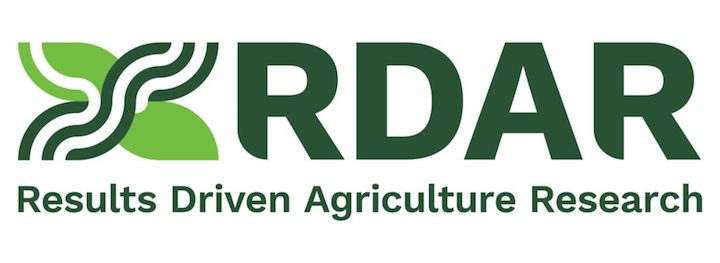RDAR’s (Results-Driven Agriculture Research) mandate is to fund producer-led results-driven agriculture research, with a laser-like focus on projects that have an imminent benefit to Alberta’s agricultural sector.
“RDAR invests in ag research projects,” confirms Clinton Dobson, RDAR’s Research Director. “Within these projects, we want to see transdisciplinary teams working together in producer/public/private partnerships to accelerate the adoption of technologies and products on farms.”
RDAR’s mandate is guided by a five-year Strategic Framework designed to anticipate and respond to emerging trends and market demands. This strategy provides the scope to react quickly to change and respond to emerging issues, for example, drought and heat stress, and to the growing use of technology and tools to drive production and profits on the smart, connected farm.
To target the dissemination of innovation, RDAR relies on Extension Services to ensure producers can hit the road running with new knowledge. To be sure that Extension is tailored to the needs of the 21st century producer, RDAR formed a cross-industry Extension Task Force. Following a comprehensive review of options, and completing surveys and consultations with stakeholders, the Task Force is expected to deliver its recommendations in summer 2022.
RDAR also supports extension in the field, demonstrating how new technologies and practices, when linked to ‘how to adopt’ information and training, enable producers to adopt innovation into their operations. At the most granular level, RDAR even brokers connections between researchers, producers and industry to power up the transformation.
The livestock sector is an area of emphasis for RDAR, as exemplified by the linkages between Gentec and RDAR: RDAR’s Board comprises former Gentec directors Dr. David Chalack and Dr. Fred Lozeman, current director Dr. Stan Blade and industry collaborator JP Brouwer. On RDAR’s research team is Gentec alumnus Dr. Brian Karisa.
“Genomics IS happening!” says Clinton, “Although RDAR is new (we came into existence in July 2020), we have invested in two significant projects with Gentec and the Canadian Beef Improvement Network (CBIN) to advance knowledge mobilization. Together, we can rapidly advance genetic literacy among beef producers so they can achieve the economic potential of genomics on their farm or ranch.”
RDAR’s investments include $1.4 million in Gentec projects (see here and here for examples) and $640,000 in CBIN . The standout factor for both organizations is that they can deliver transdisciplinary producer-public-private partnerships to overcome the challenges to the uptake of genomics in the beef sector. Gentec also works with CBIN to determine where Gentec can add value to CBIN’s strategic outcomes and put genetics-based breeding tools into the hands of producers.
“Investing in the collaboration between Gentec, CBIN, the beef breed associations and CBBC was a shoo-in for RDAR,” says Clinton. “It will build greater synergies, and increase the competitiveness and sustainability of producers. We’re confident about the broad adoption of beef-breeding genetics, and we can draw parallels to other sectors’ successes, for example, the dairy industry. Although adoption in beef lags behind dairy, that just means we have great opportunities to make big strides in driving genetic improvement on the ranch.”

